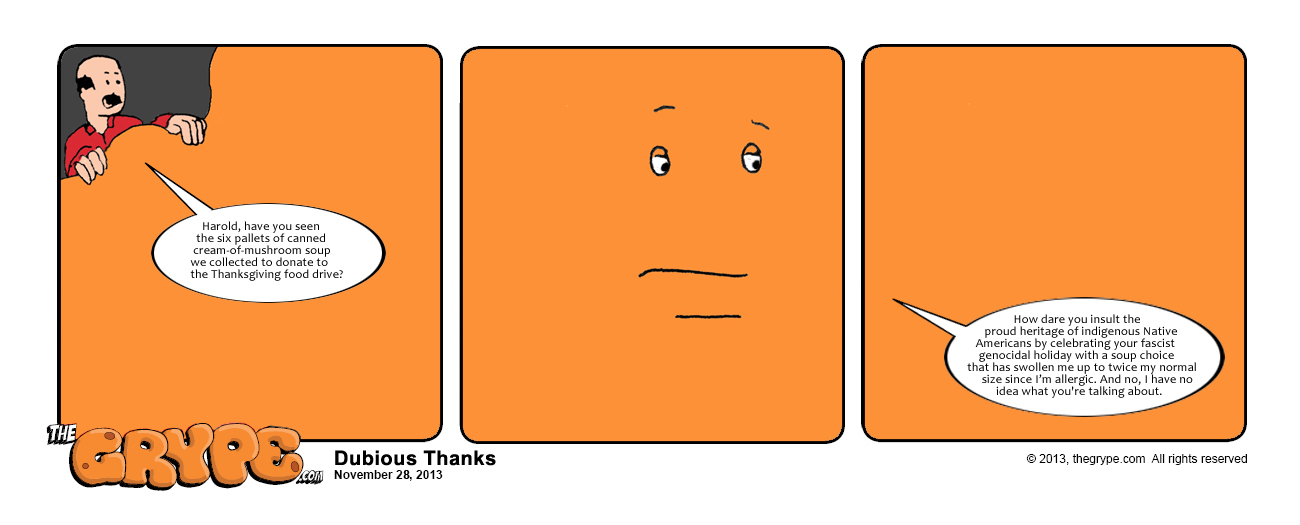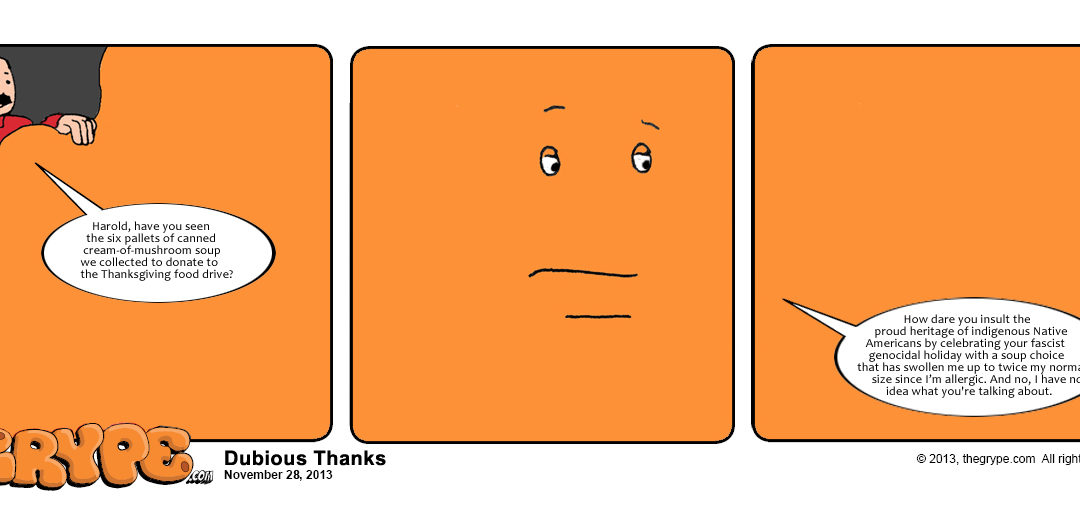 There is a corporate tendency to embrace and reinforce historically-inaccurate nonsense in order to sell products— including the ridiculously incorrect notion of America’s “First Thanksgiving.” Each November the interwebs brim with gushing patriotism, religious sentiment, and angry diatribes about Pilgrims and Native American genocide. Why not buy into the traditional tale of divine approval and willing complicity of Native American accomplices in fulfilling our nation’s grand manifest destiny…a tale guaranteed to warm the hearts of European Americans and seriously piss off the ancestors of America’s indigenous inhabitants.
There is a corporate tendency to embrace and reinforce historically-inaccurate nonsense in order to sell products— including the ridiculously incorrect notion of America’s “First Thanksgiving.” Each November the interwebs brim with gushing patriotism, religious sentiment, and angry diatribes about Pilgrims and Native American genocide. Why not buy into the traditional tale of divine approval and willing complicity of Native American accomplices in fulfilling our nation’s grand manifest destiny…a tale guaranteed to warm the hearts of European Americans and seriously piss off the ancestors of America’s indigenous inhabitants.
Except it’s a fable. Here’s what really happened, for anyone interested:
First of all, there were a lot of colonists in America whose arrival predated the Massachusetts colony, and they weren’t all puritan “Pilgrims.” The settlement at Jamestown predated the Pilgrim’s landing at Plymouth Rock by 13 years, so there were already other Europeans in America at that time. Secondly, the whole “Thanksgiving” thing came from an old puritan habit of renouncing formal holidays (like Christmas) and instead declaring days of “fasting” and “thanks giving” whenever something happened that made them guilty (fasting) or grateful (thanks giving).
The first formal “Thanksgiving” event— about which we’ve heard so much (view A Charlie Brown Thanksgiving for more detailed info… apparently the Pilgrims served jelly beans), was ACTUALLY held on a whim by the puritans of the Massachusetts settlement to celebrate the fact they had managed to survive the previous year and make it to a decent harvest. Since tons of colonists died over the previous winter, the luxury of having something to eat must have seemed seriously worth celebrating to the ragged Plimoth survivors.
The presence of Native Americans at the feast is subject to much debate; if it really happened, then it was more a sullen military negotiation than a happy Puritan supper mixer. Many of the local tribes were still reeling from a massive plague that wiped out three quarters of the indigenous population of New England a decade earlier, disrupting their whole way of life and leaving the north East Coast of the USA wide open for European incursion. In short, pretty much everyone in the area— both colonists and natives included— was sucking it pretty hard during that historical period. It took a long time for the Native Americans to recover enough to put up formal resistance to encroaching Europeans— which they DID, wiping the floor with European invaders for a hundred years or so until they got caught up in European colonialism themselves and wound up fighting alongside either the French or English, depending upon the political climate and supply of European wampum being offered. Wampum in this case consisting of lots and lots of guns and gunpowder to settle their assorted inter-tribal rivalries and conflicts.
The bottom line is that a formal day dedicated to “Thanksgiving” was at that time (and technically still is) just a handy opportunity for those who celebrate it to express their gratitude— religious and secular— for having successfully survived the trials and torments of another year before winter closed in. To use it as an excuse to rail against Native American genocide technically involves focusing your historical sights a few hundred years too early, to the beginning of a long period when the Native Americans kicked (or stringently maintained the power to kick) every white ass in North America.
What happened later was inexcusable, of course (though predictable, if one pays attention to the power of smallpox and the march of history). But it makes more sense to spike a metaphorical tomahawk at the Louisiana Purchase than to curse the sad, almost-starving Pilgrims for it. Not to mention that WHILE those pilgrims were starving, the Jamestown gang in Virginia was busy digging for gold and shooting anything that crossed their path. Which they seriously were.
Of course, feel free to mock the traditional story of “the First Thanksgiving” as a silly children’s story (which it is). There’s a scene in Addam’s Family Values that hilariously blasts it out of existence. But don’t lump that scorn into an excuse to bash the whole concept of “taking a moment to feel thankful for life and all that’s in it.” Because even if the story of the First Thanksgiving isn’t true, that doesn’t mean the truth behind it— the simple joy of being alive— can’t still be worth celebrating.
With yams, even.

